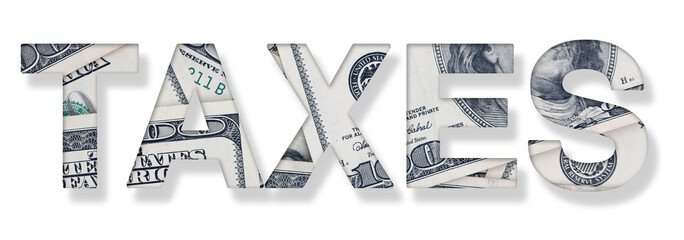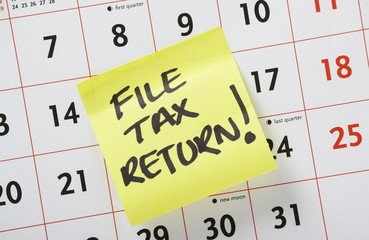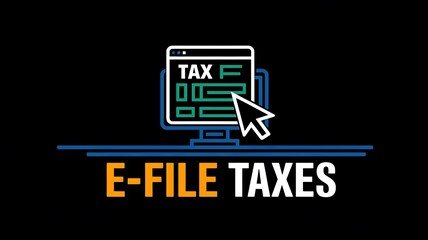Every year, tax season rolls around, and for many people, it feels like a confusing maze of forms, numbers, and deadlines. Whether you’re filing for the first time or just want to make the process smoother, understanding how taxes work can save you a lot of stress and even some money.
The good news! Filing income taxes doesn’t have to be complicated. Thanks to e-filing, submitting your tax return has never been easier. Instead of dealing with piles of paperwork and long wait times, you can file your income taxes online from the comfort of your home. Whether you choose to use a tax software program or seek professional help, there are options to fit every situation.
Let’s break everything down in a way that makes sense, no complicated tax jargon, no overwhelming details, just clear and useful information to help you file with confidence.
Why Filing Income Taxes Matters
Filing your taxes isn’t just something the government makes you do, it’s an important financial step that ensures you’re paying the right amount and getting any credits or deductions you qualify for. Some people end up overpaying simply because they don’t know about certain tax breaks, while others make small mistakes that lead to penalties or delays.
By understanding the basics of income tax filing, you can avoid costly errors and make sure you’re following the rules without leaving money on the table.

The Basics of Filing Taxes
What Is a Tax Return?
A tax return is the form you submit to the IRS (and your state, if applicable) that reports how much you earned and how much tax you’ve already paid throughout the year. Based on this, the IRS determines whether you:
✅ Owe additional taxes
✅ Paid the right amount
✅ Paid too much and qualify for a refund
Common Tax Forms You’ll Need
Your tax situation determines which forms you’ll receive. Here are some of the most common ones:
- W-2 Form – If you work a regular job, your employer sends this to show your earnings and the taxes withheld.
- 1099 Forms – If you’re self-employed, a contractor, or do gig work (like Uber, DoorDash, or freelancing), you’ll likely get a 1099.
- 1098-T – If you paid college tuition, this form helps you claim education-related tax benefits.
- 1098-E – If you have student loans, this shows how much interest you paid, which may be deductible.
Knowing what forms to look for makes tax season much easier.
E-Filing: The Easy, Fast, and Secure Way to File
Gone are the days of mailing paper tax returns and waiting forever for the IRS to process them. E-filing (electronic filing) allows you to submit your taxes online, making the process quicker, easier, and more accurate.
Why More People Are Choosing to E-File
✅ Faster Processing – The IRS receives your return instantly, meaning refunds are processed quicker.
✅ Fewer Errors – Many e-filing services check for mistakes before you submit, reducing the risk of IRS delays.
✅ Security – Your information is encrypted, making it safer than mailing paper forms.
✅ Convenience – File anytime, anywhere, no need to visit an office.
Many reputable services, such as Liberty Tax, E-file and other options that offer user-friendly options to guide you through the process step by step. Whether you’re filing a simple return or need extra assistance with deductions and credits, these platforms make it easy to handle everything online.
Deductions and Credits: How to Lower Your Tax Bill

Many people pay more in taxes than they have to simply because they don’t take advantage of deductions and credits.
What’s the Difference Between a Deduction and a Credit?
- A deduction lowers the amount of income that gets taxed.
- A credit directly reduces the amount of tax you owe, and in some cases, can result in a refund.
Common Tax Deductions
- Student Loan Interest – You may be able to deduct up to $2,500 in interest paid.
- Mortgage Interest – Homeowners can deduct interest paid on their mortgage.
- Self-Employment Expenses – If you run a business or freelance, expenses like office supplies, internet costs, and even a home office may be deductible.
- Medical Expenses – Certain out-of-pocket medical costs may qualify if they exceed a percentage of your income.

Popular Tax Credits
- Child Tax Credit – If you have kids under 17, this can help reduce your tax bill.
- Earned Income Tax Credit (EITC) – Designed for lower-income workers, this credit can lower taxes owed.
- American Opportunity Credit – Helps students or parents paying for college claim up to $2,500 in credits.
Understanding these can make a huge difference in your tax outcome.
Choosing the Best Way to File
There’s no one-size-fits-all method for filing income taxes. Your choice depends on how comfortable you are handling your own finances and how complex your situation is.
Option 1: File Online (E-File)
For those with a simple tax situation, like a single job with no major deductions filing income taxes online is the easiest and fastest option. Online tax software provides step-by-step guidance and ensures accuracy.
✅ Best for: W-2 employees, students, and simple tax situations
✅ Pros: Fast, easy, and often free for basic returns
Option 2: Use a Tax Professional
If you’re self-employed, own a business, have investments, or just want expert help, using a tax preparer or service is more expensive but can be worth it. They ensure you will take full advantage of deductions and credits while avoiding costly mistakes.
✅ Best for: Self-employed workers, business owners, or those with complex tax situations
✅ Pros: Personalized advice, error prevention, audit support
What Happens If You Don’t File?
Skipping your taxes might seem like an option if you’re overwhelmed, but it creates bigger problems in the long run:
❌ Late Penalties – The IRS charges fees for not filing, even if you don’t owe anything.
❌ Interest on Unpaid Taxes – If you owe, interest builds up over time.
❌ Delayed Refunds – If you’re owed money, you won’t get it until you file.
Even if you can’t afford to pay what you owe, it’s better to file and set up a payment plan than to ignore it altogether.
However, know that there are circumstances when you legally do not have to file. For instance, if you didn’t make enough yearly income.
Filing your taxes doesn’t have to be stressful or confusing. Whether you e-file for convenience or work with a tax professional, knowing your options makes tax season much easier to handle.
The key is to file accurately and on time, take advantage of any deductions and credits you qualify for, and choose the filing method that works best for your situation.
With online platforms like E-file and Liberty Tax, you have access to tools that can make the process easier. No matter how you file, being informed is the best way to take control of your taxes and avoid unnecessary stress.










